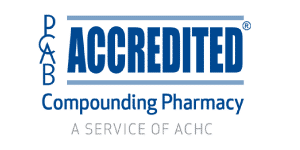What is a Nutrient Deficiency?
Nutrient deficiency means the body is getting a very low amount of vital nutrients such as vitamins and minerals. Essential nutrients, vitamins, and minerals are needed for our body to function properly. Poor diet and bad quality of foods is the main cause of the nutrient deficiency.
What are the Most Common Types of Nutrient Deficiencies?
1. Calcium Deficiency:
Calcium is an essential nutrient for the bones. The human body uses calcium to build bones and teeth. Calcium Deficiency can cause weak bones, hair fall, abnormal heart rhythm, etc. All the main functions of the body can collapse if the body does not get enough calcium.
2. Essential Fatty Acids Deficiency:
Fatty acid deficiencies are very rare and mostly occur in infants. It occurs when omega-3 consumption is too low. Fatty acid deficiencies cause growth disorders in infants and children.
3. Folic Acid Deficiency:
Folic acid is one of the many B vitamins that performs a very important role in making red blood cells that carry oxygen to all parts of the body. Low folic acid in the body can cause anemia. It is especially crucial during pregnancy, as women with low folic acid can have many complications.
4. Iron Deficiency:
Iron deficiencies occur when the body won’t have enough iron. Inadequate intake of iron-rich foods, bad iron absorption, loss of iron due to excess blood loss or during developmental levels in life consisting of adolescence, pregnancy, or breastfeeding can cause iron deficiency. Frequent tiredness and weakness, headache, dizziness or lightheadedness, shortness of breath, pale or yellow skin are some of the symptoms of iron deficiency.
5. Magnesium Deficiency:
Magnesium is a very important mineral as it influences hundreds of metabolic reactions withinside the body that consists of regulating muscle and nerve function. Symptoms of magnesium deficiency consist of muscle cramps, unexplained numbness or tingling, and excessive blood pressure, abnormal heart rhythms.
6. Vitamin A Deficiency:
Vitamin A (retinol, retinoic acid) plays a vital role in cell division, vision, and improving the immune system of the body. People suffering from vitamin A deficiency can suffer from severe diseases and infections that can lead to death. As children are more susceptible to infections, it is important that infants under the age of five get enough vitamin A in their diets or through supplements. Vitamin A deficiency can lead to night blindness, infertility, delayed growth, inflamed skin, and severe respiratory infection.
7. Vitamin B12 Deficiency:
Vitamin B12 is one of the 8 forms of B vitamins, vitamin B12 allows the shape of red blood cells, improves neurological function, and provides constructing blocks for DNA. Symptoms of vitamin B12 deficiency are similar to those of anemia, consisting of weakness, tiredness, or lightheadedness, heart palpitations, shortness of breath, pale skin, and frequent mood changes.
8. Vitamin C Deficiency:
Vitamin C acts as an antioxidant and plays an important role in your body’s healing process. Vitamin C helps in the formation of hormones and amino acids that enables the body to effectively absorb iron. Vitamin C deficiency can lead to diseases called scurvy which causes inflammation and bleeding of gums, weakness, fatigue, rashes, and poor wound healing.
9. Vitamin D Deficiency:
Vitamin D is produced in our bodies when exposed to adequate quantities of UVB radiation from sunlight. Vitamin D’s key function is to regulate the amount of calcium and phosphate in the body. Vitamin D Deficiency can lead to bone deformities or rickets in children and bone pain caused by a condition called osteomalacia in adults.
The important way to prevent nutrient deficiencies is to eat necessary good quality food and maintain a good diet that helps to prevent nutrient deficiencies. Compounding medication can help people who cannot eat or swallow food to get vital nutrients. Compounding medication can be made in the form of creams, gels, troches, lozenges, drops, injections, capsules, etc.





